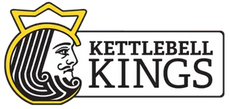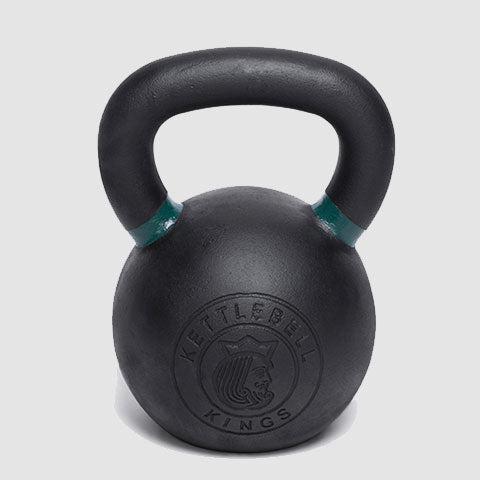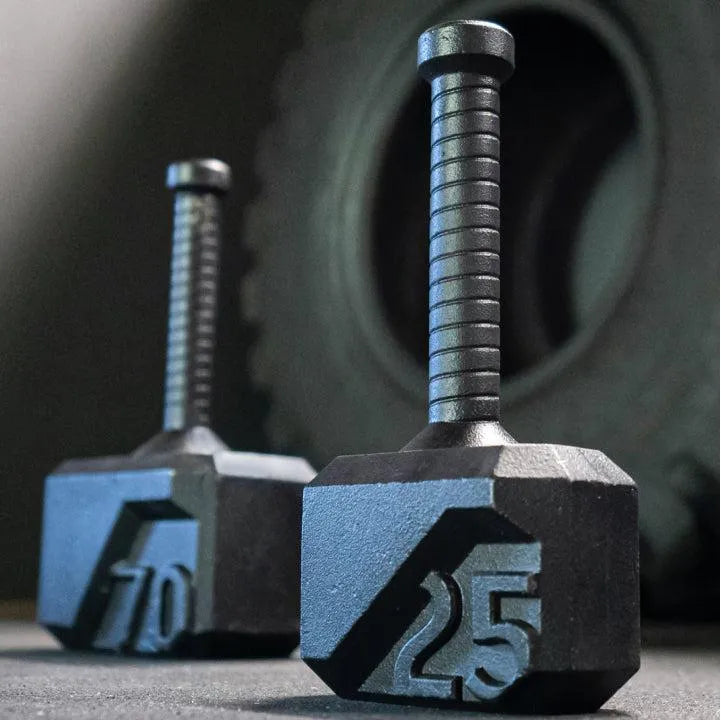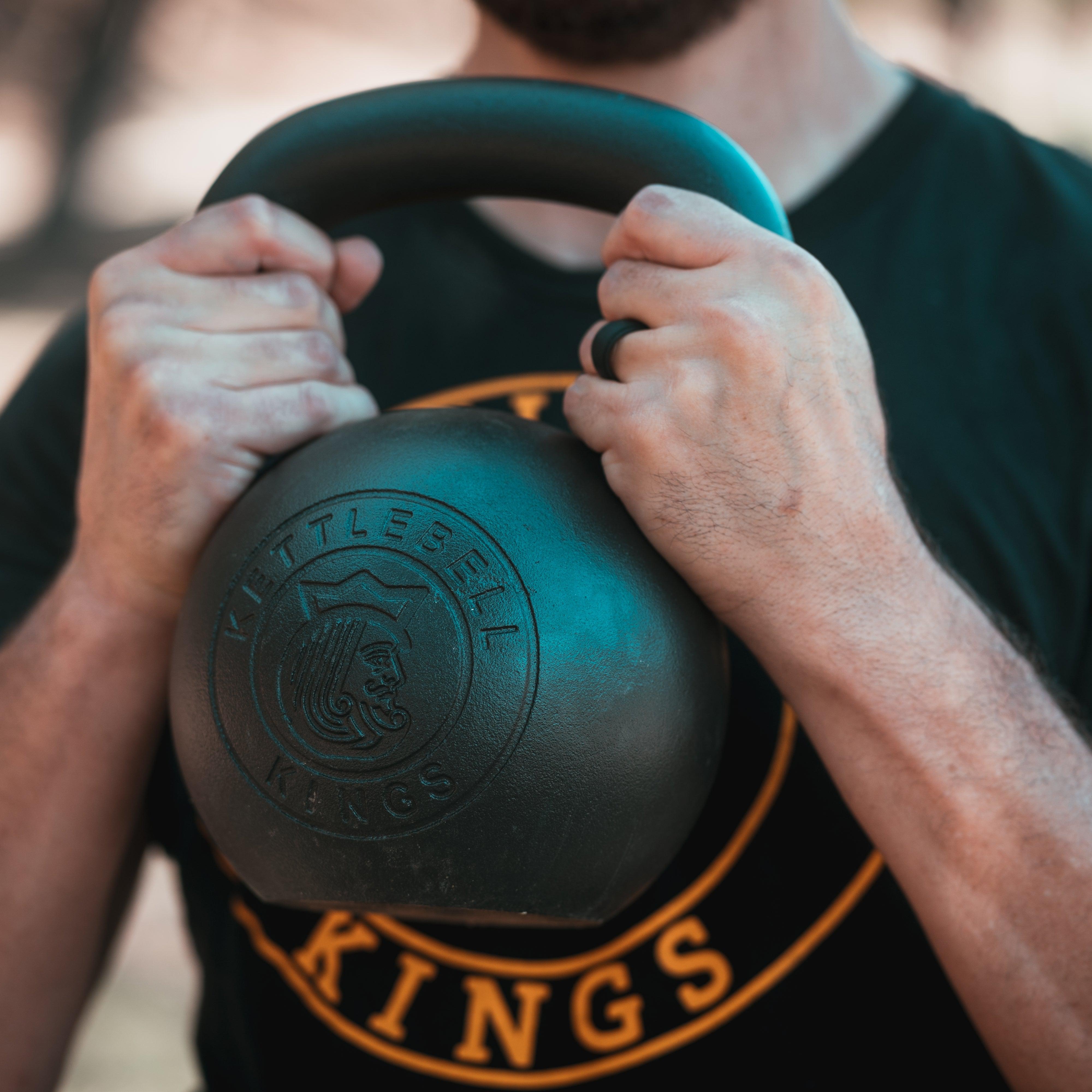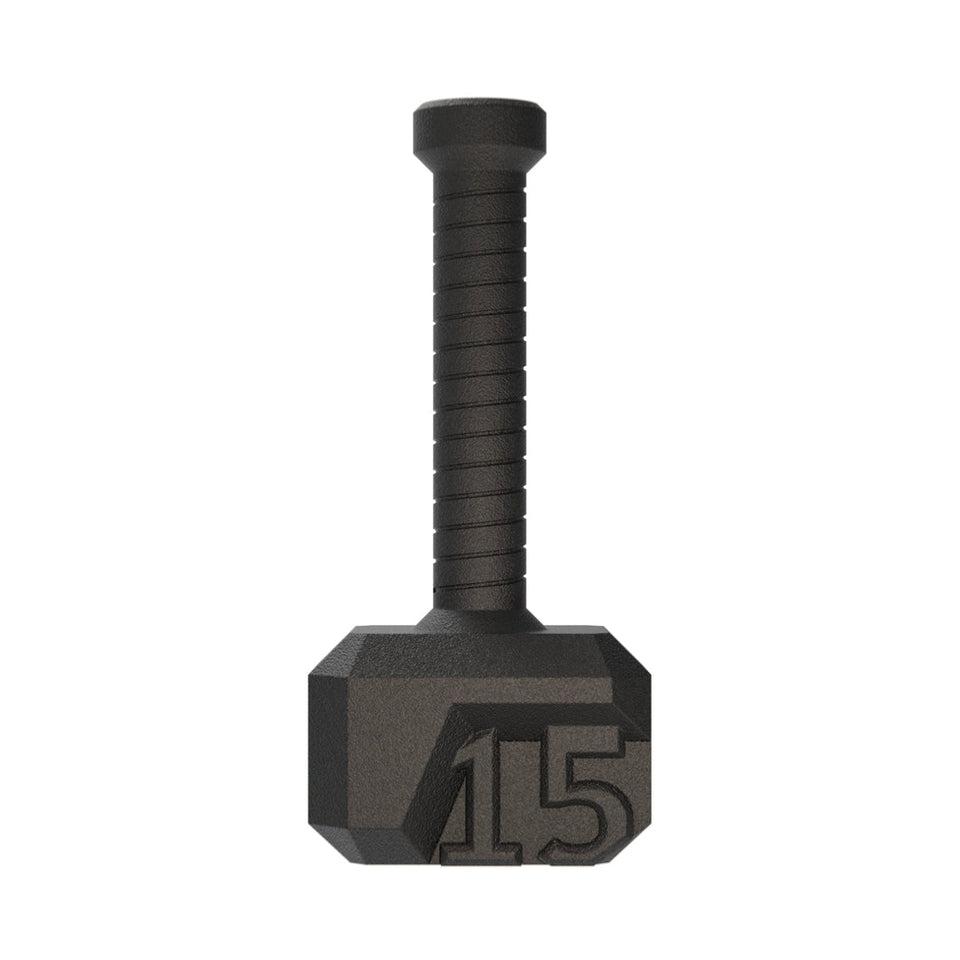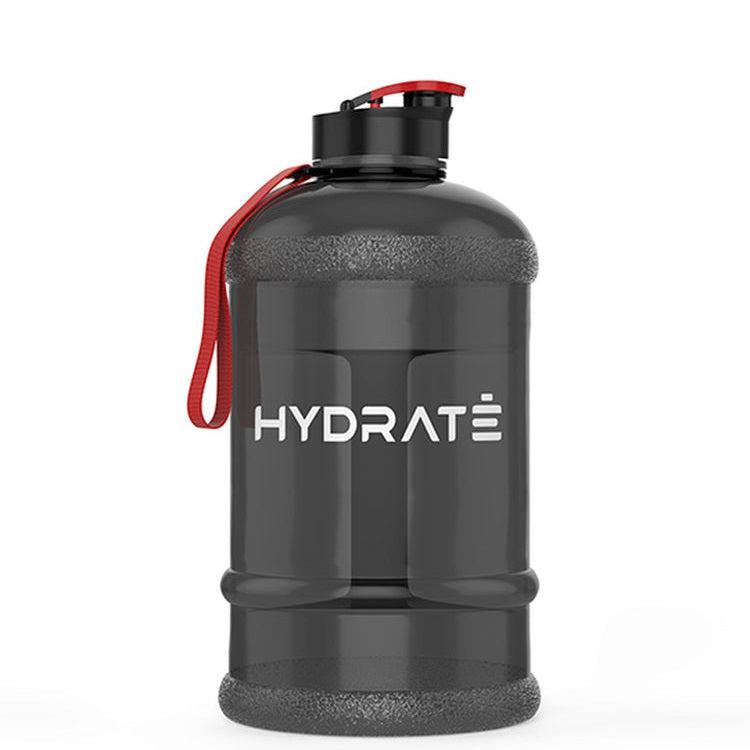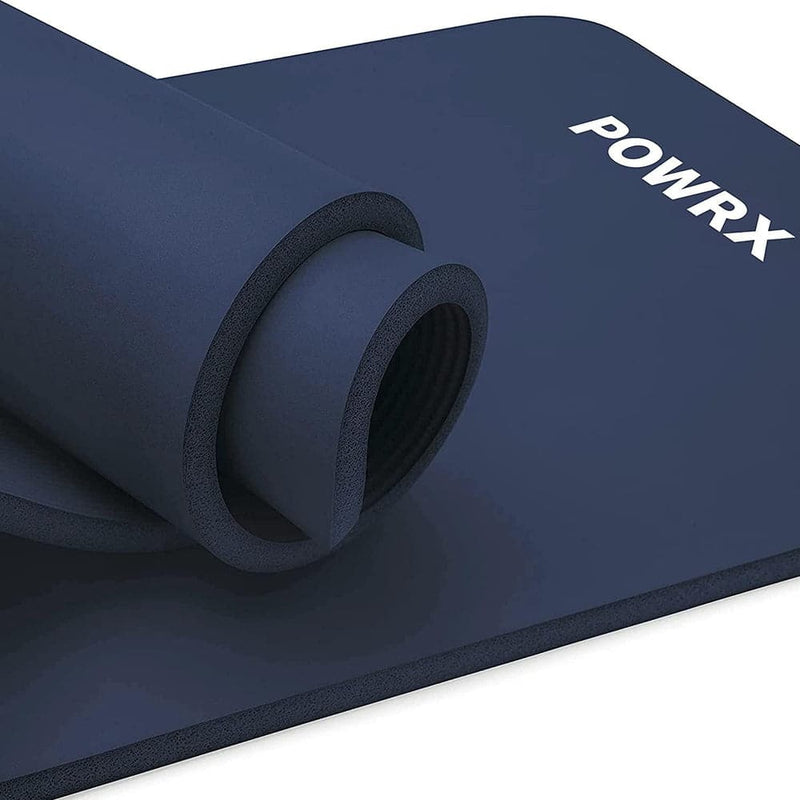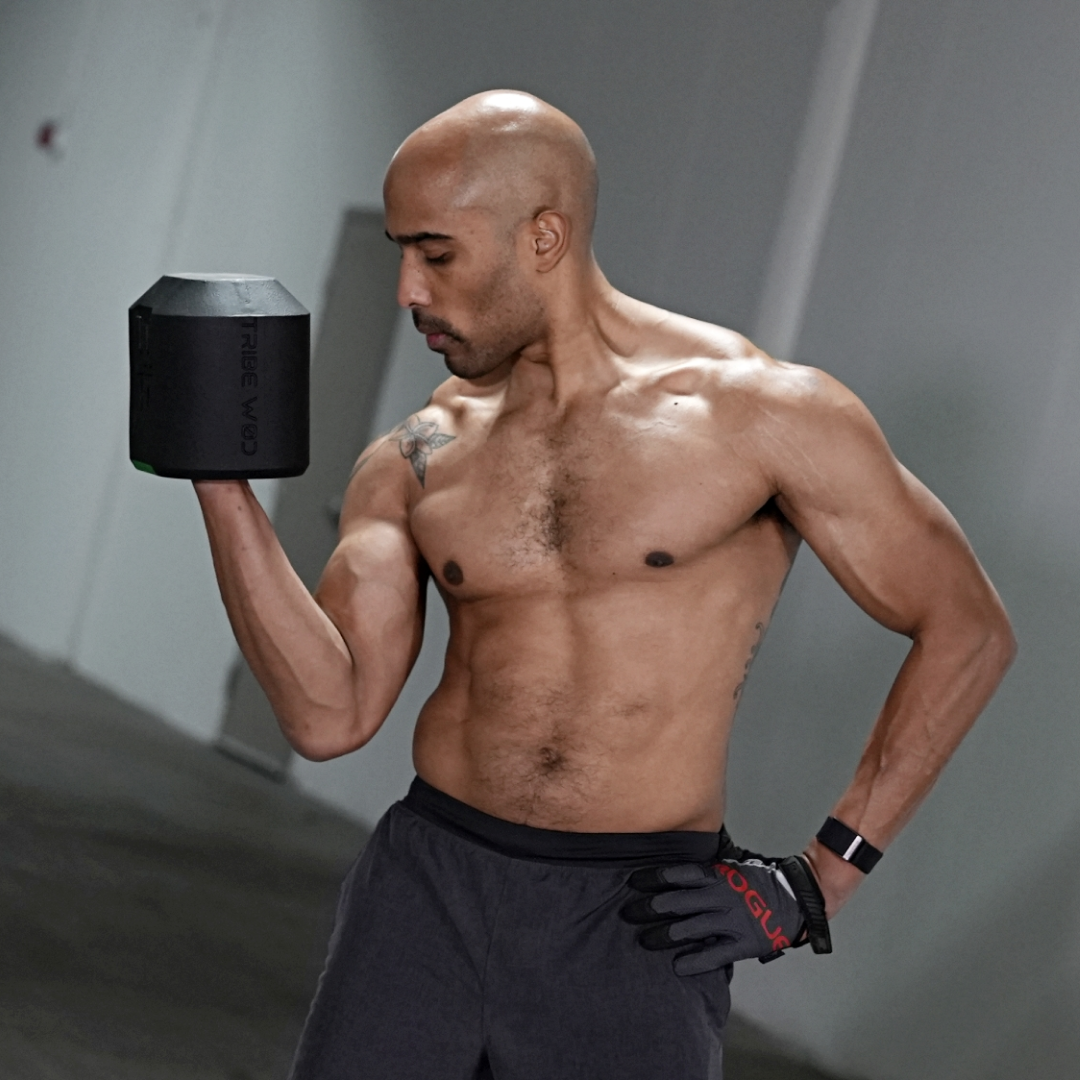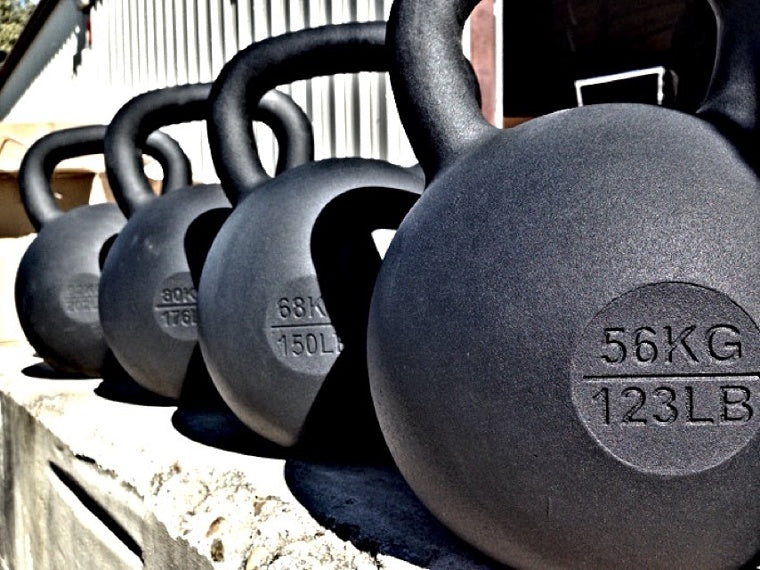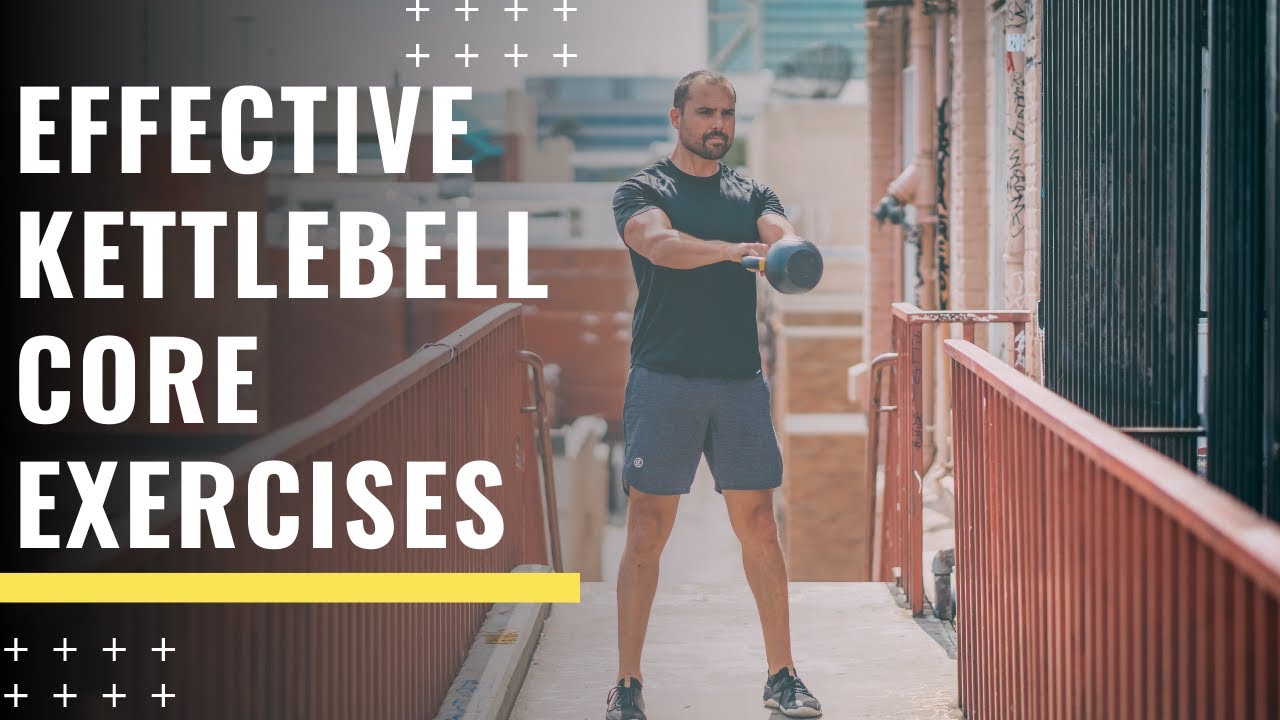Most people probably still think of kettlebells mainly as equipment for high repetition and/or high intensity workouts, which they are great for. However, kettlebells can be used for high weight/low repetition movements as well if you really want to build muscle, especially one of the most important muscle groups in your body. Some people know this, which is why our 48Kg|106 Lb Powder Coat kettlebell is always one of our top sellers when it is in stock.
At Kettlebell Kings we recently launched even heavier kettlebells in 56, 68, 80 and 92 kilograms, designed for those who want to take their low repetition kettlebell movements to the next level, so we wanted to do a series on some of the best uses for them.
For the purposes of this series, heavy is a relative term. The movements we will cover in this series can be d
one with any kettlebell that is heavy relative to your current strength. For example if you currently train with an 8 kilogram bell for high rep workouts you could do these same movements we show here with a 20 or 24 kilogram bell. We chose to showcase some of the super heavy bells we have designed for folks with a pretty high level of fitness, kettlebell or lifting experience but you can do the same movements with kettlebells which are heavy relative to your current training.
Jessica and Seneca from Texas Kettlebell Academy have put together an instructional piece on the 'Heavy Kettlebell Deficit Deadlift (squat hybrid)' which we will go over here. The purpose of the 'Heavy Kettlebell Deficity Deadlit' is to strengthen the posterior chain. What is that? Only one of the most important groups of muscles in your body which affects your ability to move.
The posterior chain is a group of muscles consisting of tendons and ligaments on the posterior of the body, including the biceps femoris, gluteus maximus (main extension muscle of your hips), erector spinae (straighten and rotate the back), trapezius (large muscles that cover almost your entire back), and posterior (butt).
These muscles are responsible for running, jumping and getting up and down all of which are required in every day life but even more so in competitive lifting and athletics because of the necessity of powerful hip extension, which this lift helps. Overall, that makes the Deficit Deadlift a great lift for overall improvement in and outside the gym.
-
increased range of motion compared to normal deadlift
-
place kettlebell in between platforms/boxes and stand on them above the kettlebell
-
knees are over the ankles, the weight is back on your heels
-
spine is straight, lift with arms first, keep back straight and drive with force through heels
-
you do not have to drop kettlebell all the way back down when coming down but you do want to get low
How to Incorporate into Your Training:
Do a density cycle in which you build reps over time and reduce rest in between each subsequent time. For example, every minute on the minute do 'X' amount of reps and rest the remainder of the time until the next minute starts. Over time, try to get more reps and less reps in the same cycle.
Example:
Do 5 reps, say it takes you 20 seconds, then rest 40 seconds until the next minute, repeat for 'X' amount of total minutes. If your goal is 50 total reps, then 10 minutes in this example.
Then next time do 6 reps, rest the remainder of the minute and repeat on the next minute.
Your goal is to be able to do more reps over time and increase the strength of your posterior chain, quads and back.
Ultimately, doing movements like this will increase both your strength and endurance. It has functional use for every day movements because of the hip extension as well as competitive fitness, athletics and kettlebell sport training because of the of blend strength and endurance.
Edit:
We have created Part 2! To see a demonstration of using heavy kettlebells like Atlas Stones in Strongman competitions, read part 2!
Have a look at our heavier kettlebells in 56, 68, 80 and 92 kilograms, designed for those who want to take their low repetition kettlebell movements to the next level.
We recently launched even heavier kettlebells in 56, 68, 80 and 92 kilograms, click the weight to view!
For a full post about the different weights you should be training with based on your goals, you can read HERE.
What Is Next?
If this is your first time reading one of our posts, we create kettlebell workouts in collaboration with kettlebell experts designed to give you maximal results and not take up much of your time. We send these to your in box automatically every week! We recommend you read more about receiving a quick, free, dynamic kettlebell workout every week you can click below.
Also, we recommend you subscribe to our posts so you can be notified when we publish more in this series. Additionally, you can be notified when we publish new articles about specific kettlebell movements or techniques as well as niche pieces like this designed for specific training.
About Jessica
Jessica Gorman is the Assistant Coach at TXKB, and specializes in kettlebells, clubbells®, TACFIT® and active flow bodyweight training as primary tools for building strength and increasing endurance, energy and fitness levels. Jessica is a member of TXKB's competitive Kettlebell Sport team, and has earned her Master of Sport and several CMS ranks in Long Cycle and Biathlon. She had the honor of being one of the first women in the US to compete in Long Cycle with two 16kg bells (Feb 2015), and currently trains under TXKB’s Head Coach, Aaron Vyvial.
Coach Gorman's certifications and credentials include:
- CST Level 1
- TACFIT Level 1
- KETAcademy Instructor Level 1
- OKC Instructor Certification
- IKLF Level 1 Instructor
- USAKL/Bolt City Director
- IKFF Level 1
As well as private sessions & Master-level seminars with several male and female world championship lifters
Kettlebell Kings has the most highly & frequently reviewed kettlebells in the world. Check out our 4,000 reviews for quality and customer service!
